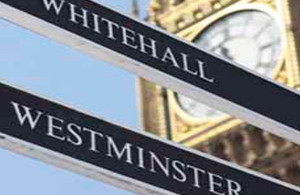Universal Credit: government proposal to take account of past earnings in repeat claims: consultation announced
A consultation on the proposal to take account of surplus earnings from the prior 6-month period when a person reclaims Universal Credit.

The Social Security Advisory Committee (SSAC) has launched a public consultation on the government’s intention to take account of surplus earnings from the prior 6-month period when a person reclaims Universal Credit.
The proposal means that, in certain circumstances, entitlement could be delayed for up to a maximum of 6 months.
This is designed to ensure greater fairness between workers who have regular earnings patterns, and those whose earnings fluctuate. It will also protect against potential manipulation of the system by workers and employers who arrange their payment patterns specifically in order to maximise Universal Credit entitlement.
Announcing the consultation, Paul Gray (the Committee’s Chair) commented:
It is perfectly reasonable for the government to put measures in place that will prevent manipulation of the system in order to maximise entitlement to Universal Credit. However it would be unfortunate if those in genuine need were penalised by a measure intended to address potential abuse. This could have a considerable impact on those whose circumstances have changed unexpectedly requiring them to make a repeat claim for Universal Credit.
I understand that the department will advise claimants moving off Universal Credit that surplus earnings will be taken into account if they return within 6 months, and it can therefore be argued that individuals could prepare financially for such an eventuality. But very few of us in that situation would be able to resist using the opportunity of having work – or better paid work – to improve the living conditions of our family.
The initial estimates of the Department for Work and Pensions suggest that this measure, due to be introduced in April 2016, will generate savings of £200 million to £300 million a year. The evidence received by SSAC will help inform its report which will be submitted to the Rt Hon Iain Duncan Smith MP, the Secretary of State for Work and Pensions, later this year.
Responses should be submitted to the committee’s Secretary by 7 November 2014:
The Committee Secretary
Social Security Advisory Committee
5th Floor
Caxton House
Tothill Street
London
SW1H 9NA
Alternatively you can email responses to ssac@dwp.gsi.gov.uk
Read the consultation – Universal Credit: government proposal to take account of past earnings in repeat claims
Points to consider
The Committee would, in particular, welcome views on the following points.
- Is this likely to act as a disincentive for people offered a short-term contract (note that there is a monthly £100 de minimis rule)?
- The policy may apply as a result of changes in circumstances, and not necessarily because of a fluctuation in earnings. What circumstances can you envisage where the surplus earnings rule might create hardship, and how might this be mitigated?
- Given that new claims advances will not be available until entitlement begins, what are the likely impacts upon local authorities and the charitable and voluntary sectors?
- What factors should decision-makers be advised to consider when exercising their discretion to consider how the claimant’s individual circumstances will erode the surplus earnings?
- What particular problems might be faced by couples forming or separating and which are not currently addressed in the proposals?
- What are the key things that will need to be communicated to claimants for the policy to operate effectively?
The draft regulations also introduce changes to the calculation of self-employed earnings required to give effect to the surplus earnings policy. The committee intends to look at this more closely and will convene a workshop of appropriate experts shortly to help them do that. In the meantime we would additionally welcome written submissions on this aspect of the regulations.
About SSAC
SSAC is an independent advisory body of the Department for Work and Pensions. The committee’s role is to give advice on social security issues, scrutinise and report on social security regulations (including tax credits) and to consider and advise on any matters referred to it by the Secretary of State for Work and Pensions or the Northern Ireland Department for Social Development.
The committee’s Chair is Paul Gray. Its membership comprises: Les Allamby, John Andrews, Simon Bartley, Adele Baumgardt, John Ditch, Keith Faulkner, Colin Godbold, Chris Goulden, Matthew Oakley, Judith Paterson, Nicola Smith and Diana Whitworth. Its expert Adviser on Scotland is Jim McCormick.
Most social security regulations come before SSAC in draft for scrutiny, the only significant exceptions being regulations which go to other advisory bodies or which set benefit rates. When SSAC has considered regulations which it has asked to be formally referred, its response is made in the form of a report to the Secretary of State for Work and Pensions. That report must be presented to Parliament when the regulations are laid with a statement from the Secretary of State showing what has been done (or is intended to be done) about the SSAC’s recommendations (section 174(1) and (2) of the Social Security Administration Act 1992).
More information
Direct any enquiries to Denise Whitehead, Committee Secretary, on 020 7829 3354.